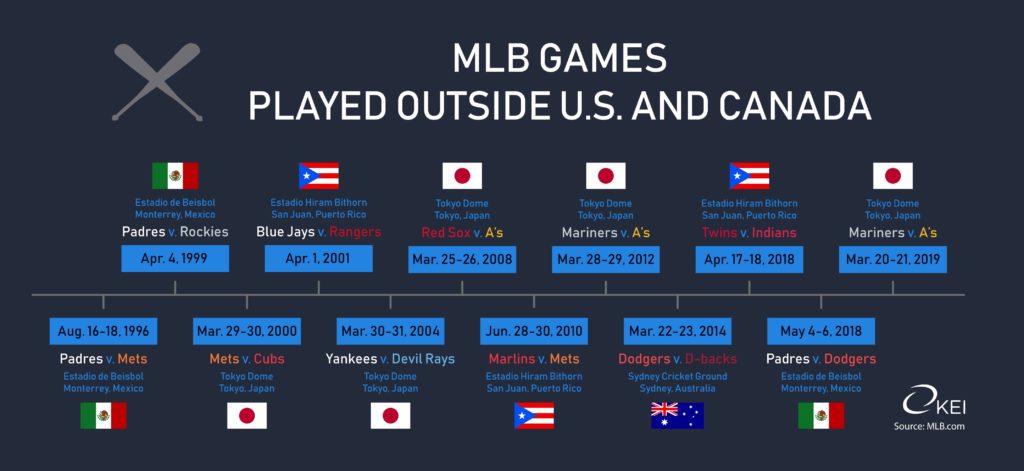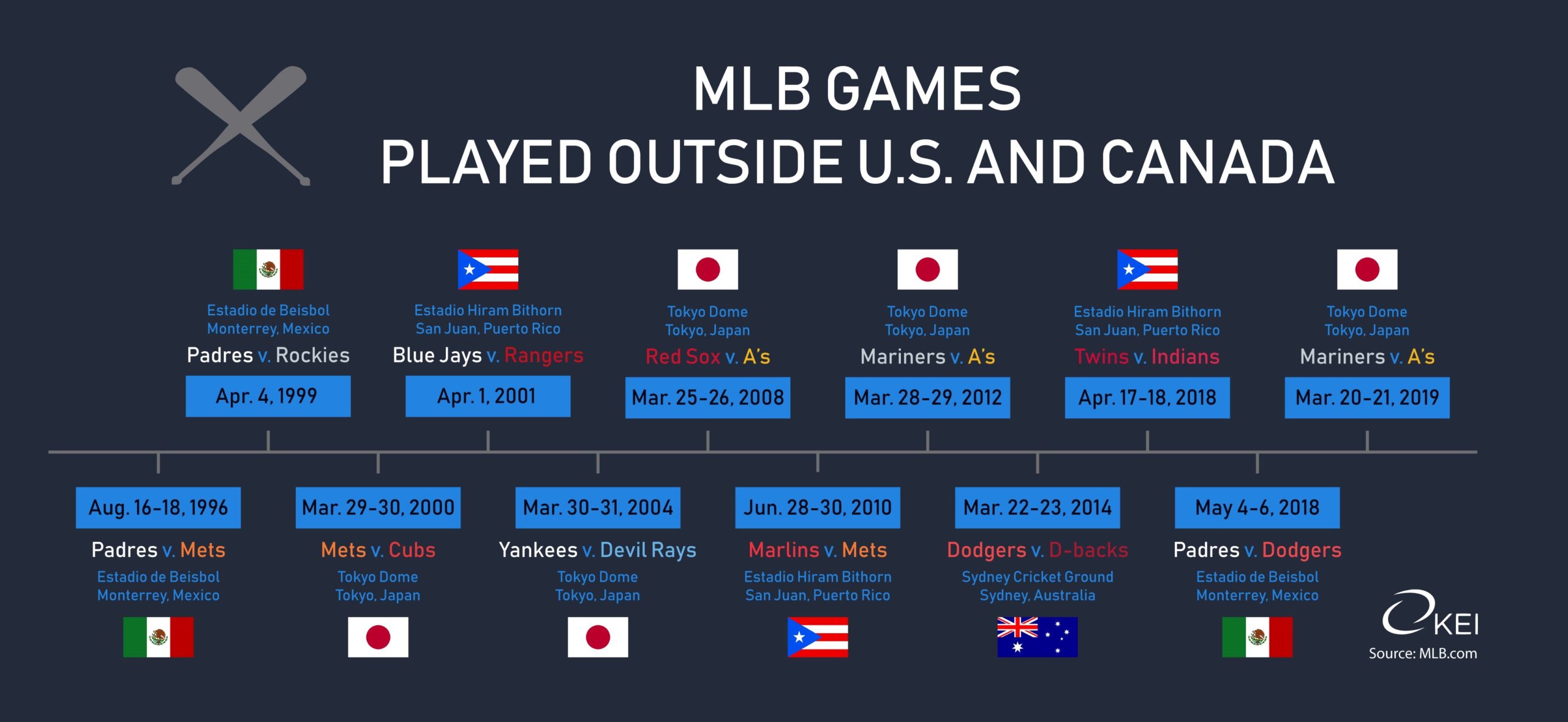The Peninsula
Is It Time for an MLB Game in South Korea?

By Troy Stangarone
On March 20 and 21, the Seattle Mariners and Oakland A’s will open the 2019 Major League Baseball (MLB) season with two games at the Tokyo Dome in Japan. One of the highlights of the series is the return of Ichiro who started and received a huge ovation in his return. As one of the greatest hitters of his generation in the United States and Japan, the games will provide a fitting capstone to Ichiro’s career as he is likely to retire after the series.
While the upcoming series will help to promote baseball in Japan and also feature the debut of latest player from Japan to play for the Mariners, starting pitcher Yusei Kikuchi, it also raises the question of whether it is time for MLB to play a series in South Korea.
Since the mid-1990s MLB has a played exhibition or regular season games overseas to promote the sport. This year’s season opener will mark the 5th time that MLB has chosen to open the season in Japan since 2000. MLB has also played regular season games in Mexico, Australia, and Puerto Rico, and considered playing games in the Dominican Republic. In 2020, MLB will play a two game series in London.

If the goal of MLB in playing games overseas is to grow the sport, there are two approaches it can take. It can reinforce the sport in areas where it is already popular, such as Japan where the Nippon Professional Baseball league has long been considered the best league outside of MLB, or it can attempt to build the sports in promising markets like Australia where the game is not yet among the major sports.
One of the advantages of promoting the game overseas is expanding the level of talent available to MLB teams. The first Japanese player to come to the United States, Masanori Murakami, arrived in 1964. While there was a gap after Murakami in players from Japan, more recently Japan has become a prime recruiting ground for MLB talent since Hideo Nomo came to the U.S. in 1995 and was followed by stars such as Ichiro, Hideki Matsui, and Shohei Otani. Mexico and Puerto Rico, a U.S. territory, are also promising markets with a long history of being fruitful sources of talent for MLB. In addition, there is the prospect that MLB could expand to Mexico City in the near future.
Australia and the United Kingdom fall into the category of opportunities to grow the game in promising markets. In the case of Australia, MLB has a partnership with the Australia Baseball League, but the game in Australia is still in its infancy with attendance running less than 1,000 fans per game. In Europe, the game has historically had some interest in countries like the United Kingdom, the Netherlands, and Italy. Given the success of soccer players in Europe, there is clearly athletic talent that MLB could tap into if it were able to convince some promising athletes to choose baseball over soccer. Playing a series in London is a way to try to grow a fan base in Europe.
While Europe is a promising new market, baseball is significantly more established in South Korea where the game was originally introduced by American missionaries in the 19th century. Similar to Japan, it would seem to be a promising established market in which to grow the game. In contrast to Australia, the Korea Baseball Organization (KBO) averages around 11,600 fans per game. As the world’s 11th largest economy it is also relatively wealthy, and with over 50 million South Koreans there is a relatively large potential fan base and talent pool for MLB to tap into.
The KBO is also increasingly seen a place for MLB to find talent and for American players to continue their careers. Current players from Korea include Choo Shin-soo, Ryu Hyun-jin, Oh Seung-hwan and Choi Ji-man. While the KBO also hosts promising future major leaguers such as the pitcher Ahn Woo-jin, third baseman Choi Jeong, and outfielder Na Seong-beom.
In recent years, American and other foreign players have also increasingly gone to the KBO and the NPB to rejuvenate their careers in light of the level of competition each league provides. Eric Thames of the Milwaukee Brewers was able to translate his success in the KBO into a successful transition back to MLB.
MLB over the last two decades has done a good job of building ties with Japan. In addition to five regular season series, MLB on six different occasions has sent post-season All-Star teams on goodwill tours of Japan. In 2013 and 2017, similar ideas were floated for Korea, but nothing has come to pass.
Whether it’s a post-season All-Star tour or a season opening series, it’s time for MLB to deepen its efforts to grow the game in South Korea.
Troy Stangarone is the Senior Director for Congressional Affairs and Trade at the Korea Economic Institute of America (KEI). The views expressed here are the author’s alone.
Graphic created by Juni Kim, Program Manager, at KEI.
Photo from redlegsfan21’s photostream on flickr Creative Commons.
